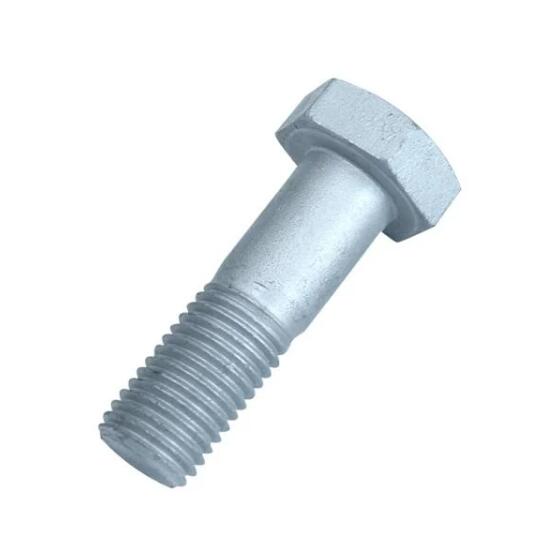Understanding Heavy Hex Bolts: What They Are and Where They’re Used
2024-08-10
Heavy hex bolts are a critical component in many construction, industrial, and mechanical applications, but what exactly makes them different from standard bolts? In this blog, we'll dive into what heavy hex bolts are, their unique features, and the various applications where they are commonly used.
What Are Heavy Hex Bolts?
Heavy hex bolts are a type of fastener characterized by their larger, thicker heads compared to standard hex bolts. The "heavy" in their name refers to this increased head size, which provides a larger bearing surface and greater clamping force. This makes them ideal for heavy-duty applications where strength and durability are paramount.
Key Features of Heavy Hex Bolts
1. Increased Head Size: The most noticeable feature of a heavy hex bolt is its larger head, which is designed to distribute the load over a greater area. This helps prevent the bolt from being pulled through the material and reduces the risk of bolt failure under high stress.
2. Thread Design: Heavy hex bolts typically feature coarse threads, which allow for a stronger grip and easier installation. The threads are often rolled, rather than cut, to enhance the bolt's tensile strength and resistance to fatigue.
3. Material and Finish: Heavy hex bolts are commonly made from high-strength materials such as carbon steel, stainless steel, or alloy steel. They may also be coated or plated with zinc, galvanized, or other finishes to enhance corrosion resistance and durability in harsh environments.
Where Are Heavy Hex Bolts Used?
Due to their robust design and strength, heavy hex bolts are used in a variety of demanding applications, including:
- Structural Steel Connections: Heavy hex bolts are commonly used in the construction of bridges, buildings, and other structures where high strength is required to support large loads and ensure stability.
- Heavy Machinery and Equipment: In industrial settings, heavy hex bolts are used to secure components of heavy machinery and equipment, where vibration, pressure, and stress are significant factors.
- Power Generation and Energy: Heavy hex bolts are essential in power plants, wind turbines, and other energy infrastructure projects, where they help secure critical components under extreme conditions.
- Marine and Offshore Applications: Given their resistance to corrosion and ability to withstand harsh environments, heavy hex bolts are often used in marine and offshore structures, such as oil rigs and ships.
Benefits of Using Heavy Hex Bolts
- Enhanced Load Distribution: The larger head size of heavy hex bolts distributes the load more evenly, reducing the likelihood of material deformation and ensuring a secure connection.
- Increased Clamping Force: The robust design of heavy hex bolts allows them to provide greater clamping force, making them ideal for applications where high tensile strength is required.
- Durability and Longevity: Made from high-strength materials and often coated for additional protection, heavy hex bolts offer exceptional durability and a longer service life, even in challenging environments.
Conclusion
Heavy hex bolts are indispensable in applications where strength, durability, and reliability are non-negotiable. Their unique design and features make them a preferred choice for a wide range of industries, from construction to energy and beyond. Understanding the characteristics and benefits of heavy hex bolts can help you make informed decisions when selecting fasteners for your projects, ensuring safety and performance in even the most demanding conditions.



